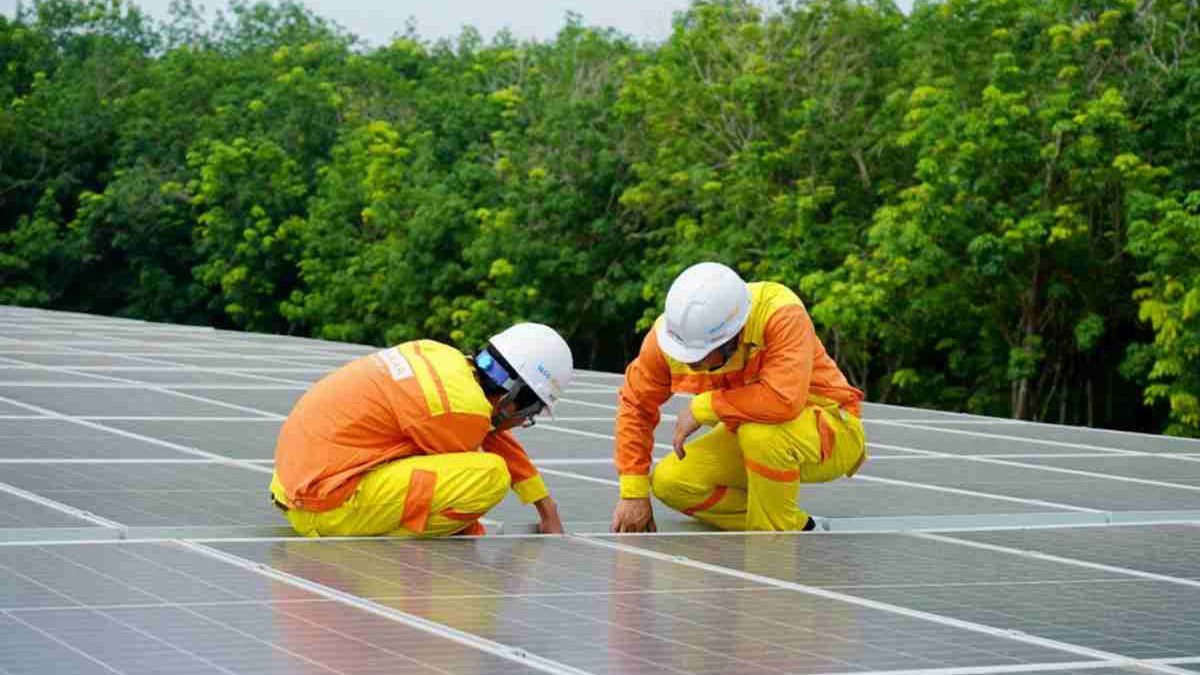Sustainable energy is no longer just a buzzword; it’s a vital component of contemporary business strategies. As climate change concerns heighten and energy costs rise, businesses are seeking ways to reduce their carbon footprints while also cutting expenses. This blog post will discuss several viable sustainable energy strategies that businesses can adopt to achieve these goals.
Table of Contents
Understanding Renewable Energy Sources
To effectively leverage sustainable energy, it’s important to understand the different types of renewable energy sources available. The primary ones include solar, wind, hydroelectric, geothermal, and biomass. Each of these sources offers unique advantages and potential applications, depending on a business’s location and industry.
Exploring Wind Energy
For businesses located in areas with consistent wind patterns, wind energy can be a viable option. Wind turbines can be installed on-site or through partnerships with wind farms. While the initial setup costs can be high, the return on investment in terms of energy savings and sustainability can be substantial over time.
The Role of Government Incentives
Government incentives and grants can play a significant role in making sustainable energy projects more financially viable. Many governments offer tax credits, subsidies, and other forms of financial support to encourage the adoption of renewable energy technologies. Businesses should research and take advantage of these programs to offset initial costs and improve long-term financial sustainability. In addition to government incentives, businesses should also assess commercial electricity rates to find competitive energy plans that align with their sustainability goals. Evaluating different rate options can help secure more favorable terms and reduce overall energy expenditures.
Leveraging Hydroelectric Power
Although not feasible for all businesses, those located near water sources might consider small-scale hydroelectric solutions. These systems convert the kinetic energy from flowing water into electricity. While larger hydroelectric dams are more commonly discussed, there are micro-hydro systems suitable for smaller applications that can still provide considerable energy generation.
Energy Efficiency
Before diving into renewable energy systems, addressing energy efficiency within the organization is important. Simple steps such as upgrading to LED lighting, optimizing HVAC systems, and ensuring proper insulation can significantly reduce energy usage. This not only minimizes the initial investment needed for renewable energy systems but also maximizes their effectiveness once implemented.
Biomass: Turning Waste into Energy
Biomass energy involves converting organic materials, such as agricultural waste, wood, and even certain types of garbage, into electricity or heat. This method not only reduces waste but also provides a renewable source of energy. For businesses in the agriculture or food processing sectors, utilizing biomass can be particularly appealing.
Implementing Solar Power Solutions
One of the most popular and accessible renewable energy options is solar power. Installing solar panels can be an effective way for businesses to generate their own electricity, particularly in regions with high sunlight exposure. Solar energy systems can range from small rooftop installations to large solar farms, providing flexibility depending on the size and energy needs of the company.
Partnering for Sustainability
Collaboration with other businesses, non-profits, and research institutions can accelerate the journey toward sustainable energy. By forming partnerships, companies can share knowledge, resources, and technologies, leading to creative solutions and cost-sharing opportunities. Collaborative efforts can also amplify the impact of sustainability initiatives, making it easier to achieve broader environmental and economic goals.
Innovative Geothermal Solutions
Geothermal energy harnesses the heat from beneath the earth’s surface to generate electricity or for direct heating/cooling purposes. Though more location-specific, businesses situated in geothermal hotspots can benefit significantly from this reliable and constant energy source. Additionally, geothermal systems tend to have lower operational costs once installed.
Building a Culture of Sustainability
Integrating sustainable energy strategies involves more than just technology; it requires fostering a culture of sustainability within the organization. Encouraging employees to participate in sustainability initiatives, offering educational programs, and setting clear and attainable goals can make a significant impact. Engaging the whole workforce ensures that sustainability becomes a big part of the business ethos rather than an afterthought.
Harnessing the Power of Energy Storage
Energy storage technologies, such as batteries, are rapidly advancing and can greatly enhance the effectiveness of renewable energy systems. By storing excess energy produced during peak generation times, businesses can ensure a steady supply of power even when renewable sources are not actively generating energy. This can be particularly useful for managing energy demands and reducing reliance on the grid.
Sustainable energy strategies are important for businesses aiming to reduce their environmental impact and manage energy costs effectively. By understanding and implementing renewable energy sources, improving energy efficiency, and fostering a culture of sustainability, businesses can achieve their sustainability goals. The journey towards sustainable energy is ongoing, but with careful planning and commitment, it can lead to substantial benefits for both the environment and the bottom line.

